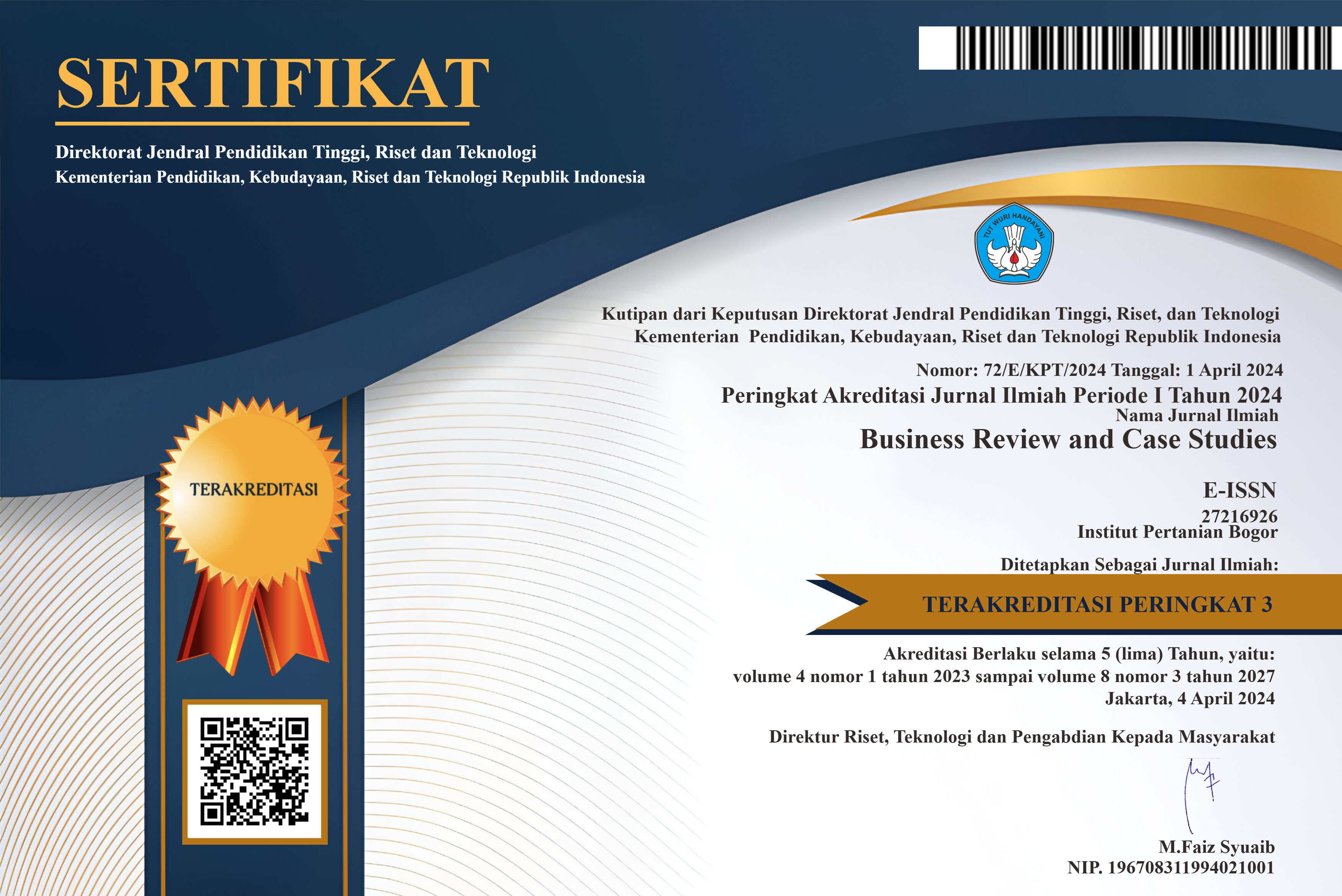The Effect of Consumer’s Perceived Ethicality on Purchase Intention Through Brand Trust (Case Study Indofood and Unilever)
DOI:
https://doi.org/10.17358/brcs.4.1.23Abstract
The application of business ethics is crucial in today's competitive business world. Disclosure of ethical violations in business has an impact on consumer responses to corporate's image. The wide variety of brands in the Fast Moving Consumer Goods (FMCG) industry makes the strength of a brand very important for companies. Thus, other values in a brand have an effect on purchasing decisions. This other value becomes the point of ethical behavior involved. This study aims to analyze the relationship between consumer’s perceived ethicality on purchase intentions mediated through brand trust. The sampling method used a purposive sampling method with the characteristics of the respondents having used and consumed the Indofood and Unilever company brands (which have been described in the questionnaire for the period March to May 2022). The research sample was 120 respondents using the formula theory Hair, which is 10 multiplied by the total of indicators. This research uses Partial Least Square-Structural Equation Model (PLS-SEM) in data processing. The results of this study found that ethical perceptions received by consumers had a positive and significant effect on purchase intentions which were partially mediated by the variable consumer trust in brands.
Keywords: business ethics, FMCG, brand trust, purchase intentions, PLS-SEM







.jpg)






